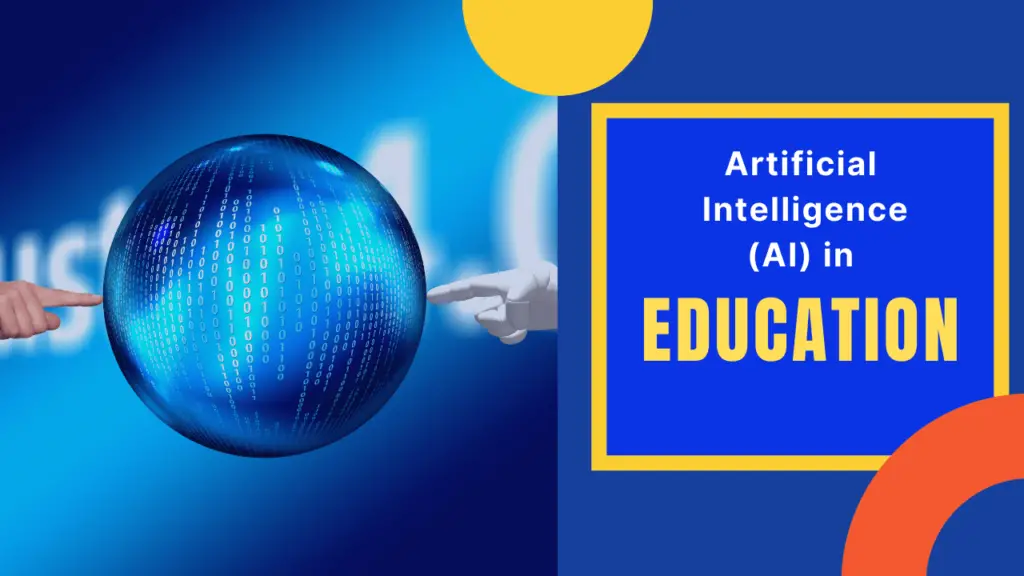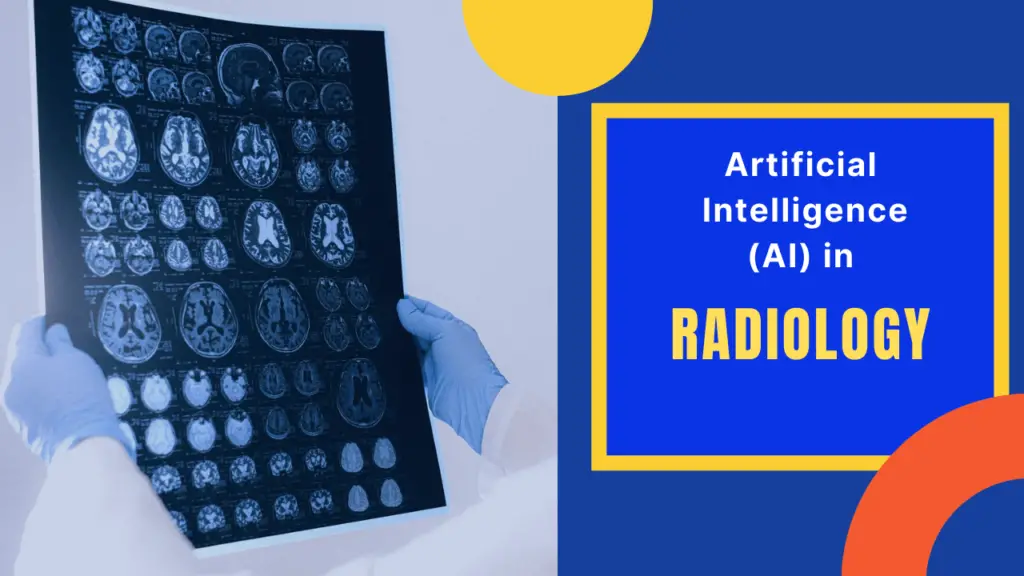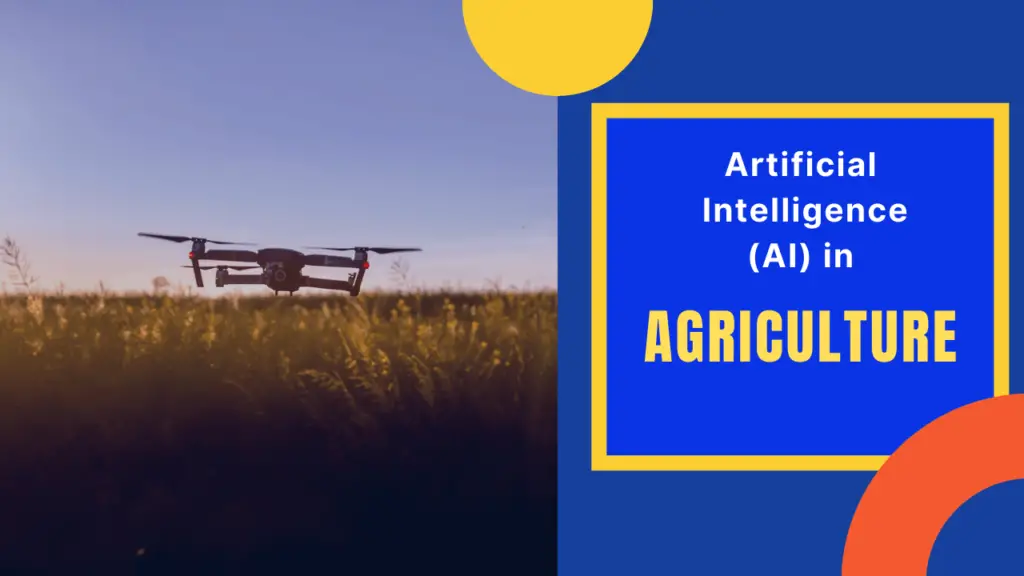AI technology has revolutionized different fields and one of them is education. It has been speculated that AI and machine learning can greatly improve the quality of education in the coming years. AI in education is transforming the way to teach and learn. The latest technology enables developers to teach a computer to perform complex tasks. AI brings opportunities to improve the learning processes and provides multiple benefits to both teachers and students.

Top 10 Applications of Artificial Intelligence in Education
This is how AI tools can be applied to improve education.
1. Personalization of Education
AI helps sort out what a student knows and what he does not and creating a personalized study schedule for each student according to the knowledge gaps. AI customizes the study schedule according to the learner’s particular needs, thereby increasing efficiency. As AI becomes smarter, it would be soon possible to scan a student’s facial expressions. If the course is too complicated for the student, the platform may modify the course according to the student’s needs. Several training courses enable finding the gaps in students’ knowledge. For instance, Coursera notifies the teacher if the majority of students select incorrect answers to a specific question. Consequently, the teacher will have an opportunity to focus more on the specific topic.
2. Automation of Grading
Grading tests for huge lecture courses is a tedious task for teachers and it consumes a significant amount of time. This time can be better utilized to interact with students or work more on professional development. With AI, it has become possible for teachers to automate grading. Grading can be easily automated for multiple-choice as well as fill-in-the-blank questions. There is an essay-grading software tool that saves time for teachers so that they may engage more with students.
3. Production of Smart Content
Smart content refers to different learning materials from digital textbooks to customized interfaces. For instance, Netex Learning is a company that emphasizes building smart content platforms. The solution is full of AI-enabled features such as a digital curriculum and real-time feedback. The platform even offers personalized cloud platforms with conferences, training, and much more.
Further benefits of AI technology include:
- AI helps to generate digital learning interfaces with lessons, digital textbooks, and study guides.
- AI powers new approaches to perceiving information like web-based study, visualization, and simulation.
- AI assists in updating the content of lessons and also customizing it for learning curves.
4. Better interaction with students
Advanced technologies like gamification and VR greatly help in involving students in the learning process, making it more engaging. Different AI-powered algorithms help analyze the student’s knowledge and interests, thereby providing personalized training programs.
5. Voice Assistants
Voice Assistants like Siri and Alexa enable interacting with learning materials without having to communicate with a teacher. Consequently, the education platform can be used anywhere and at anytime. For instance, Arizona State University employs Alexa for everyday campus needs. Moreover, it is quite interesting for students to use such assistants and they are better engaged in the learning process.
6. Automatic creation of curriculum
Teachers derive a lot of benefits from AI technology. They no longer need to create the curriculum from scratch. AI has enabled teachers to spend less time looking for relevant educational materials. The automatic creation of a curriculum with AI saves a lot of time and energy.
7. Opportunity to find subject specialists
Educational platforms have plenty of teachers available online. The development in technology has enabled students to communicate and interact with specialists from around the world. The AI-powered educational platform offers the most appropriate teachers depending upon the teaching experience. AI has made it easy to find the best teacher for the required subject.
8. Helpful feedback
AI not only helps teachers craft courses that cater to the needs of students but also provides feedback to both students and teachers about the overall success of the course. Some schools use AI technology to monitor student progress as well as to alert professors when there are serious issues with student performance. Such AI systems enable students to receive the support they require and for teachers to identify areas where improvement is needed. AI systems in the future can even help students choose their majors based on their strengths and subject interests.
9. Trial-and-error learning
Trial and error is an integral part of learning. However, the idea of failing is paralyzing for many students. Some students dislike being put on the spot in front of their teachers. Nevertheless, an intelligent computer system is a much less intimidating way to deal with trial and error. AI offers students a convenient way to experiment and learn in a judgment-free environment, particularly when AI teachers offer solutions for betterment. AI is the ideal format for supporting trial-and-error learning since AI systems themselves learn by the same approach.
10. AI-powered data can change how schools teach students
Smart data gathering enabled by AI can make modifications to how colleges interact with students. From recruiting students to assisting them to choose the appropriate courses, AI helps to make every part of education closely tailored to students’ goals.
Data mining systems are currently playing an important role in the higher education landscape, but AI has the potential to alter higher education further. Some schools are taking initiatives to offer AI-guided training to students that may ease the transition between school and college. The college selection process in the future may end up like Netflix with an advanced system that recommends the best colleges for students’ interests.
Conclusion
AI has the potential to transform everything about education. Using AI tools, students may learn from anywhere in the world at any time with limited cost. Since these AI programs are replacing some types of classrooms, AI can potentially replace teachers. AI-powered educational programs help students acquire basic skills. Since these programs are rapidly growing and developers are learning more, students will be offered a much wider range of services in the future. AI systems can be programmed to serve as a platform for students to ask questions and find solutions.


